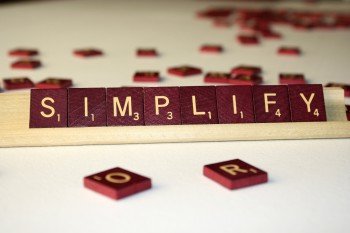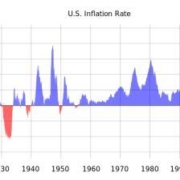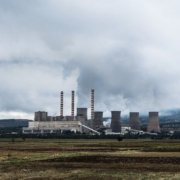Voluntary Simplicity and the Steady-State Economy
by Mark Burch
Voluntary simplicity is most basically characterized by the practices of mindfulness and material sufficiency. Through bringing mindfulness to our daily lives, we seek the maximum of well-being achievable through the minimum of material consumption. Well-being applies to all life forms on Earth, not just people.
The practice of sufficiency implies conscious moderation of material consumption to some admittedly flexible limit discerned by weighing both physical needs and ethical principles. Voluntary simplicity is about enough, for everyone (including other species), forever. The practice of sufficiency replaces the pursuit of affluence in consumer culture.
There are a number of synergies between voluntary simplicity and the social arrangements conducive to a steady-state economy. There are also some differences and divergences.
First, voluntary simplicity traditionally takes an individual household or “microeconomic” perspective of the good life. Most of the literature about simple living is addressed to individuals and how they can exercise choice within the scope of their personal lifestyles and families to improve quality of life through reducing material consumption. Steady-state economics is a set of macroeconomic policy recommendations. There is a discontinuity of scale between these two ways of looking at life, though certainly not a discontinuity of the values that inform both perspectives.
Both steady-state economists and practitioners of voluntary simplicity care deeply about ecological limits and social justice. Both see conserving ecosystems and reducing inequity as intimately tied up with decisions about consumption. The steady-state goal of limiting the scale of the economy relative to the ecosphere would probably be endorsed by many practitioners of simple living.
Second, there is little reference in the simplicity literature to population issues. But I would suggest that among most practitioners of voluntary simplicity, limiting population as a necessary condition for a good life is a concept so taken for granted that it scarcely gets mentioned. From its earliest formulations, steady-state economics has urged limits on human population as a prerequisite for attaining a steady state within Earth’s carrying capacity (Daly 1995). Just how this might be achieved is a continuing topic of discussion with fertility licensing being only one option.
 Third, mindfulness practice helps us distinguish material from nonmaterial needs. As we become more skilled at securing appropriate satisfiers for each, we discover that material needs are small and relatively stable over time, thus calling for a small, steady-state economy to provide for them. Consumer culture’s emphasis on production for affluence derives from its tendency to conflate nonmaterial needs (which are limitless) with material consumption (which is constrained by planetary limits). The insights offered by voluntary simplicity about what makes for a good life, what role material things play in it, and how to cultivate mindfulness about our consumption choices offer a powerful complement to macroeconomic policies in promoting overall sustainability.
Third, mindfulness practice helps us distinguish material from nonmaterial needs. As we become more skilled at securing appropriate satisfiers for each, we discover that material needs are small and relatively stable over time, thus calling for a small, steady-state economy to provide for them. Consumer culture’s emphasis on production for affluence derives from its tendency to conflate nonmaterial needs (which are limitless) with material consumption (which is constrained by planetary limits). The insights offered by voluntary simplicity about what makes for a good life, what role material things play in it, and how to cultivate mindfulness about our consumption choices offer a powerful complement to macroeconomic policies in promoting overall sustainability.
Fourth, the history and present-day practice of voluntary simplicity illustrate that a high quality of life depends jointly on sufficient material provision and abundance of nonmaterial experiences that contribute to well-being. Fortunately, sufficient material provision is easy to achieve within ecological limits if our economy and marketing methods do not systematically and artificially inflame desire for material goods as proxies for meeting nonmaterial needs. Once material needs have been met, the extra ecological footprint incurred for meeting nonmaterial needs is remarkably small. Practitioners of voluntary simplicity, therefore, provide living examples of the good life that is possible in a steady-state economy.
Fifth, living within the means of what the planet can provide, as urged by steady-state economics, requires a move away from economic globalization and toward localization. Voluntary simplicity recognizes self-reliance as a key element of a good life. Cooperating with our neighbors to provide local goods and services achieves community economic development. Such cooperation builds economic assets with tools such as local currencies, barter systems, cooperative enterprises, and all manner of production using local labor and resources. These practices also build “social capital” — the dense network of relationships which include, but also transcend, economic exchange relationships. Psychological research has repeatedly shown that the quality of our relationships is the most important contributor to well-being, followed closely by the quality of our work experience, access to leisure, and physical health. Beyond modest sufficiency, monetary riches occupy a distant fourth or fifth place on the list of what makes for a good life. Promoting personal and community self-reliance seems highly synergistic with the requirements of a steady-state economy.
Perhaps the greatest difference between the voluntary simplicity movement and steady-state economics is the analysis of desire (or lack thereof). For simple living, this analysis is fundamental to a good life. The origins of desire seem to be mostly lacking from economic theory and analysis. Mainstream economics rests on an 18th-century theory of human psychology and motivation that finds no empirical support from modern psychological research (see the critique of the “standard economic model” offered in Schor 2009). Moreover, macroeconomic policies amount to the imposition of measures by elite economic agents upon the rank and file of humanity who are often kept in the dark about social and environmental problems and are intentionally kept out of decisions for fixing these problems. While expedient in some circumstances, such an approach squares poorly with the values of simple living. Something more is required.
The discipline of economics claims that people can be forced to modify the expression of their desires through their consumption behavior. The forcing device is the pricing mechanism, which is driven by those who want to exploit desire to generate profit. But in reality, changing behavior requires much more than getting the prices right. It requires both inquiry into the nature of desire itself and further insight or self-awareness on the part of consumers.
Certainly people can be coerced to behave in certain ways by creating price incentives for desired behavior. But another approach is possible that grows from enlightened self-awareness — not just “rational” self-interest. Human behavior changes when our consciousness of ourselves and our relationships change. Since consciousness is at least partly socially constructed, it is through our relationships with others that transformations of consciousness can occur. Therefore, changing the focal length of consciousness through mindfulness practice and conscientization experiences represents an alternate evolutionary pathway toward a better life. We need not be limited to just tinkering with price systems or imposing “limits” by elite fiat.
I should hasten to add that my view is not universal among voluntary simplicity practitioners. But there is noteworthy consistency over centuries and across cultures that the choice to adopt a simpler life is usually preceded by a fundamental change in outlook (Wagner 1903, 17). Sometimes this is caused by trauma or loss (Spina 1998), sometimes by deliberate spiritual practice (Kasser and Brown 2005), and sometimes it happens as a series of spontaneous insights that lead us to question our previous understanding of what constitutes the good life and seek alternatives (Elgin 2010; Pierce 2000).
I see many synergies between a steady-state economy and the sorts of policies and social structures that support simple living. Broad acceptance of a steady-state economy would almost necessarily include the practice of simple living, especially if the transition is to be democratic and involve the majority of citizens. Conversely, voluntary simplicity has much to offer in achieving a steady-state economy through its analysis of human desire and its emphasis on the power of mindfulness to transform consciousness. Voluntary simplicity can help us evolve toward wanting what we must in any case do.
References
Daly, Herman (1995). The steady-state economy: Alternative to growthmania. In: Steady State Economics, (2nd Edition). Washington, DC: Island Press, pp. 180-194.
Elgin, Duane. (2010). Voluntary simplicity: Toward a way of life that is outwardly simple, inwardly rich. 2nd ed. New York, NY: HarperCollins, Publishers. Elgin discusses collective action through the creative use of social media.
Kasser, Tim and Brown, Kirk Warren (2009). A scientific approach to voluntary simplicity. In: Cecile Andrews and Wanda Urbanska (2009) Less Is More: Embracing simplicity for a healthy planet, a caring economy and lasting happiness. Gabriola Island: New Society Publishers, pp. 35-40.
Pierce, Linda Breen (2000). Choosing simplicity: Real people finding peace and fulfillment in a complex world. Carmel, CA: Gallagher Press.
Schor, Juliet. (2009). “The new politics of consumption.” In: Voluntary simplicity: The poetic alternative to consumer culture. Samuel Alexander. ed., 253-269. Wanganui, NZ: Stead and Daughters Ltd. Schor provides yet another take on what might motivate the formation of a politics of simple living and some key principles that might guide it.
Spina, Anthony C. (1998). “Research shows new aspects of voluntary simplicity.” The Simple Living Network On-Line Newsletter, January-March, 1999.
Wagner, Charles (1903). The simple life. New York, NY: McClure, Philips & Co.
—
Mark Burch is a fellow of the Simplicity Institute and also the author of Stepping Lightly: Simplicity for People and the Planet.






In this article, I do not see any acknowledgement of dialectical behavioral therapy (DBT), which popularized mindfulness in clinical social work. Nor do I see any mention of mindfulness’ roots in Buddhism or Zen. Nor do I see any mention of us “dirty hippies” who pioneered voluntary simplicity in the late 1960’s.
What I do see is just more “marketing by co-opting.”
Hi Walter,
I edited Mark’s essay for this week’s Daly News, and you’re right that it doesn’t address DBT, Buddhism, Zen, or 1960s hippies. But the purpose of the article was not to explore the roots of mindfulness — it was to explore the similarities (and a few differences) between the philosophy of simple living and the principles of steady-state economics. I think Mark provided interesting insights — he certainly got me thinking. You have your reasons for seeing this essay as “marketing by co-opting.” All I’ll say about that is that there is no attempt to market anything here — nothing’s for sale; we’re just presenting ideas for building an economic system that can meet people’s needs without overusing planetary resources. Thanks, Rob.
I would like to know how the philosophy of steady state economics compares and contrasts to that of more fundamentalist voluntary simplicity views, such as those expressed by Mark Boyle in the Moneyless Manifesto. Mark Boyle’s vision is one of complete local self sufficiency, which is fundamentally incompatible with fine division of labour, global supply chains, and therefore, the personal computer and internet (and biomedical research for that matter).
I for one, don’t want to see the human race turn its back on such enabling and democratising technology as computers and the internet, and I would like to be directed to references that show the steady state economy is compatible with BOTH permanent culture and the internet. Thanks
I haven’t read Mark Boyle’s book, so I can’t honestly use it as a comparison point. But the book I wrote with Dan O’Neill, Enough Is Enough, describes how to achieve a working steady-state economy. The vision we present does not call for elimination of trade or technology, but it does call for an awful lot of changes in economic policy and human behavior! Brian Czech also has a book called Supply Shock that addresses the role of technology in the economy. I hope these two sources are helpful.
“I for one, don’t want to see the human race turn its back on such enabling and democratising technology as computers and the internet, and I would like to be directed to references that show the steady state economy is compatible with BOTH permanent culture and the internet. Thanks”
It isn’t enabling or democratising for the people who live in the countries where the raw materials are extracted, or the countries where those materials are manufactured into computers and other internet devices. It will be democratic in its contribution to greenhouse gas concentrations in the atmosphere, as it is currently the second largest contributor to that. The internet itself is built on a physical and procedural hierarchy that is very strict. Having access to information (much of which is of dubious quality) has not had a measurable positive impact on any of the countries where the internet has the greatest penetration. The level of happiness and access to basic needs however, continues to be highest in countries without what you might call “civilization”.
Has the internet done good things? Sure. Was it worth it? More and more people are starting to say no, once all the relevant factors are accounted for.
I’m not familiar with Mark Boyle’s book either, so can’t offer the specific comparison that David asks for. Suffice it though to say that there is a wide spectrum of views about how simple living is practiced and many different views about the role of technology within a life of mindful sufficiency. Anything taken to an extreme becomes absurd. Personally, I have always eschewed extreme views of simplicity that border on self-deprivation or negative asceticism, or that reject modern technology holus bolus. Without foregoing the benefits of economic specialization of labour and trade, and without foregoing the benefits of some technologies, I still think there is room to discuss what sorts of technology actually contribute to a good life, and how much and what kind of material consumption is sufficient for a good life. As someone whose life has been saved repeatedly by modern medicine and who uses the internet every day, I have no desire to see them cast into the dust bin of history. However, celebrating the internet does not mean I also celebrate all things “technological” without discrimination. I’ve also experienced a very good life on a very low level of material consumption. Given the challenges we face these days on many fronts, I think the message of simple living might be of great help to others. But I’m not personally inclined (nor do I think it’s necessary) to take up dumpster-diving or live in a cave by the light of single candle, to live sustainably on Earth. But these are my personal choices in how I practice simple living, and I respectfully study the stories of others who have made different choices or who have different views.